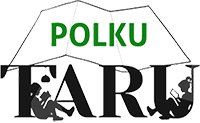Family reading programmes
Family is the primary community that affects children’s literacy. Besides the family, early education and other communities such as hobbies and clubs may lead the child to familiarize him or herself with books. Official institutions utilize family reading programmes that vary from strictly controlled instructions to loose recommendations. They provide families with materials and activities to increase or direct family literacy, for example to support social-emotional growth or emerging literacy. (van Steensel, McElvany, Kurvers & Herppich 2011) Among the most popular family reading programmes in Finland are the 15 minutes a day programme and the bedtime story shelf activity from the TARU project (Aerila & Kauppinen 2020a). Many family reading programmes are being used internationally: teachers are organizing reading circles for parents, family book reserves are being increased, authors and experts make visits to schools and nursery schools and parent-teacher conferences are being organized (Aerila & Kauppinen 2021).
It is important that family literacy support is carried out in a subtle manner. It is also important that solutions for individual needs are being looked for and that family language reserves and existing reading habits are being respected (Aerila & Kauppinen 2021; Swain & Cara 2017). The impact of family reading programmes is often regarded too narrowly as activity that only encompasses children’s literacy. Studies (Meyer 2016; Neyer, Szumlas & Vaughn 2021; Van Steensel et al. 2011) show, however, that family reading has positive effects on family interaction and emotional skills as well as parents’ literacy and their self-esteem as parents. Indeed, successful family reading programmes provide practical activity, where parents can work actively to foster their children’s growth.

